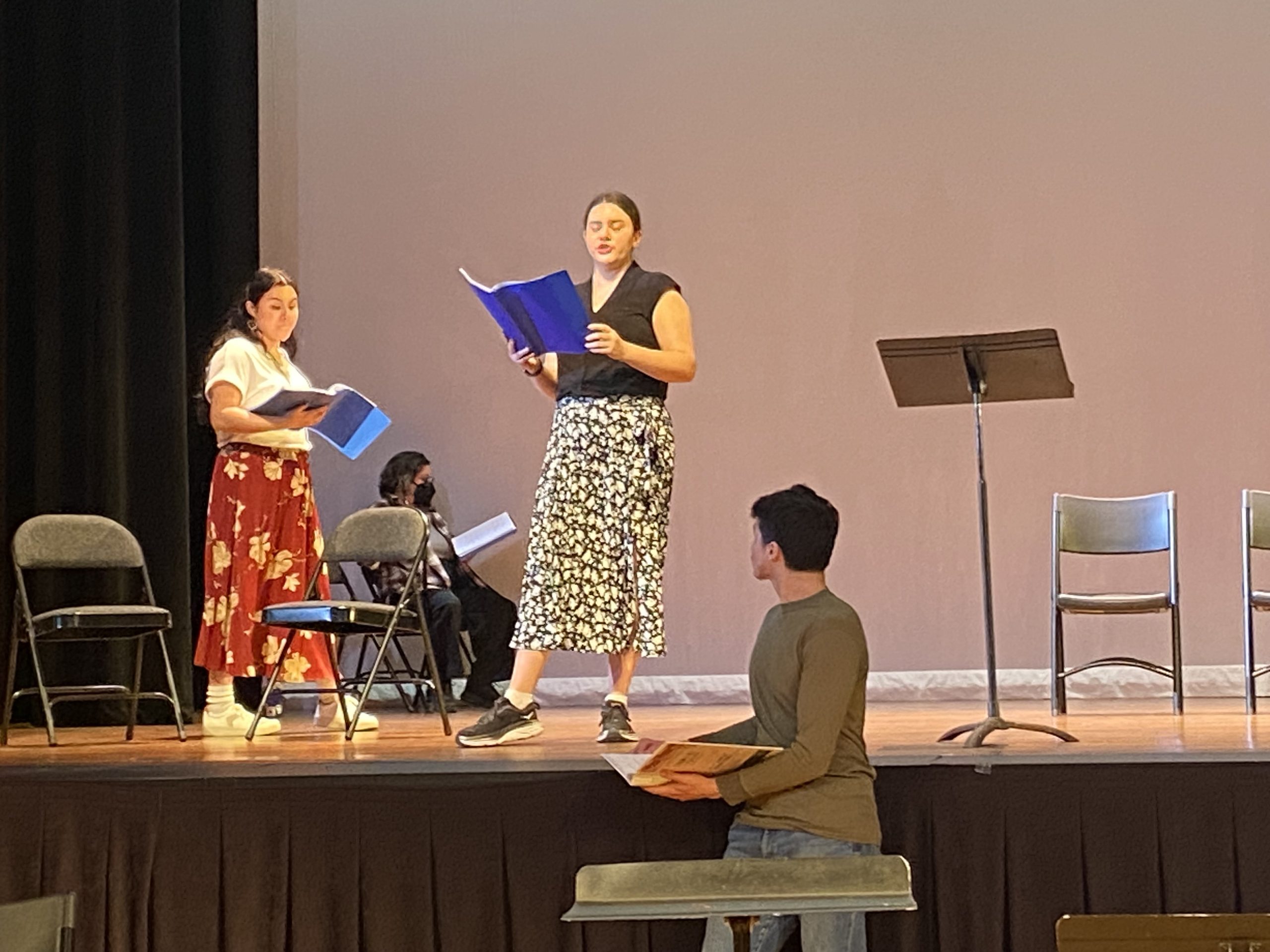
Austin Weekly News
A news site committed to in-depth reporting on issues concerning the Austin neighborhood located on the West Side of Chicago, Illinois.
Community members gathered at the Austin Town Hall Cultural Center for Cultural Conversations: Native American Heritage Month, featuring a staged reading of “Bingo Hall” and a discussion on identity, heritage, and belonging on Nov. 6.
Dillon Chitto, a Mississippi Choctaw, Laguna and Isleta Pueblo playwright, joined Osage director Elise Bear for a panel discussion led by Tony Bondoc, director of programming at the League of Chicago Theatres.
“Bingo Hall” follows Edward Anaya, a young man from the Pueblo community who finds himself torn between leaving home for college or staying close to his roots.
Bear reflected on how “Bingo Hall” resonated with their own experiences growing up on the Osage Reservation. They shared that the play’s themes mirror the choices they once faced, from deciding which high school to attend due to the lack of one in their small town, to navigating the challenges of applying to colleges beyond their community.
“I find that to be incredibly relatable and it’s something you don’t often see on stage,” Bear said. “There are monologues in this show about the Osage Reservation story, which I find incredibly inspiring because it represents the backbone of our people. I’m not Pueblo, but our own creation story informs how we live and I think that theme in this play helps pull everyone forward.”
Sign up for our free newsletter to get local news sent straight to your inbox.
Conversations among family members back in New Mexico often centered on who would leave the reservation to pursue education and who would stay to care for relatives and maintain tradition, said Chitto. This balance between opportunity and cultural preservation remains a defining reality for many in their community.
“There’s a lot of Native American theater, especially that focuses on trauma, such as the Trail of Tears or smallpox, that was important back then and it helps humanize our stories, but it’s only a small part of who we are as Native people,” Chitto said.
Chitto said their intention was to write the story in a way that highlighted specific experiences, particularly themes of migration and movement.
“I just graduated college last year. This show is meaningful to me, just because I’m working with so many Native people. This is the first show I have been able to work on that was written by a Native person,” Bear said.
The value of collaborating with artists from different disciplines and perspectives creates a strong sense of community, a point Bear emphasized. They also highlighted the importance of bringing more Native voices to the forefront and sharing stories through theater that can reach and impact wide audiences. The opportunity to present these works broadly and touch people’s hearts is something they strongly support.
Chicago has one of the largest urban Native populations, a result of the Urban Relocation Act from the 1970s, which brought many people from reservations to the city, according to Chitto, who finds it striking that some theaters struggle to produce a Native show with even two Native artists, despite the sizable local community. He notes that this challenge reflects the current state of representation in theater.
When asked about directing a stage reading, Bear said their approach was a hybrid between a traditional stage reading and a full production. They treated the script as they would for a complete show, thoroughly familiarizing themselves with the story and using the rehearsal process to explore it. Because the production involved significant movement and blocking, the director visualized the space and allowed much of the staging to develop organically.
“Mostly, it was about staying true to the text and maintaining honesty, because the characters are already so alive and vibrant. The goal was just to make sure the performance remained truthful to them,” Bear said.
Sign up for our free newsletter to get latest news and updates on Austin.
Donate | Contact Us | Advertise with Us | Newsletters | Work with Us | News | Events | Opinion | Pitch us a Story | Submit an Event to our Calendar
